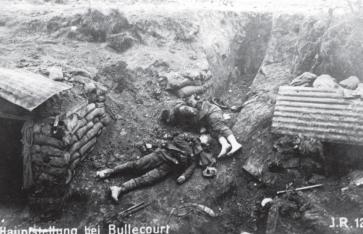 My book, Shell Shocked Britain, was published by Pen and Sword Books four years ago, but it was always about the legacy of the Great War, rather than a history of the war itself. I have been talking to groups recently, and to journalists, about how we continue to highlight how, for many, the war did not end in 1918. For thousands, it continued until their life was over. It affected their families and friends, their children and their grandchildren and is, I believe, one of the reasons why the First World War retains its emotional hold on us now. We are all, still, children of the Great War.
My book, Shell Shocked Britain, was published by Pen and Sword Books four years ago, but it was always about the legacy of the Great War, rather than a history of the war itself. I have been talking to groups recently, and to journalists, about how we continue to highlight how, for many, the war did not end in 1918. For thousands, it continued until their life was over. It affected their families and friends, their children and their grandchildren and is, I believe, one of the reasons why the First World War retains its emotional hold on us now. We are all, still, children of the Great War.
The trauma experienced by individuals and the country as a whole left a deep wound that has not yet healed, as in the 21st century we are reminded by the horrors of war in Syria, for example, and still struggle to ensure those affected, including those leaving the armed forces, have the support they need to leave conflict behind and live without fear, guilt and continuing psychological damage.
Despite the misgivings I have about marking this day as the end of the war, it is still a momentous occasion. It offers a focus and the proper recognition of the lives lost, and damaged, by all wars over the past century and gives us the opportunity to think about how our own lives have been affected. Parents, Grandparents, Great Grandparents and on through the generations – family histories have been shaped by conflicts.
For many, poetry is a way into the horrors of the war. We cannot possibly imagine what it was like to be in a trench, on the frontline, being bombarded by shellfire or knowing snipers were ready to shoot you dead the moment your head was raised above the parapet. Neither do we have any real idea of the terrible strain of the silences, the endless waiting for action, or for death. I have written about Wilfred Owen’s ‘Mental Cases’ and ‘The Parable of the Old Man and the Young’ on here before, both powerfully evoking the senselessness of war. But today I want to share another poem, this time by Christopher Grogan, who writes in the 21st century of 21st-century concerns – both personal and global. In Scene After the Battle, the personal can be interpreted as global – we are in a time of chaos, of uncertainty and of a sense that humanity must be saved, or perish.
Scene after the Battle
The cavalry never came.
For days that felt like months
I lay in the sodden mud of the field,
scanning through bloodied eyes
the blue-grey horizon, longing to see,
rising up from the ridge of the hills,
the creeping silhouettes of men and horses
against the sallow canvas of winter dusk,
carrying hopes of a game-changing charge
that would scatter the enemy, scythe him down.
But over the field now, only the wind blows
softly, collecting for trophies the final sighs of the slain.
Christopher Grogan
On this memorable 11th November, we must ensure that we do not turn our backs on those still waiting for a game-changing charge, for something to scatter the demons.
100 years on it feels as if the world is once more on the brink. We must work to ensure that humanity can once more step back from division and hostility. We must be our own cavalry.
Shell Shocked Britain is available from all good bookshops and online retailers and is currently on special offer from publishers Pen and Sword Books at £13.00. See https://www.pen-and-sword.co.uk/Shell-Shocked-Britain-Hardback/p/6103.


Such beautiful words, and not only the poem.
100 years on and it feels as though we as a species have learned absolutely nothing.
Thank you.